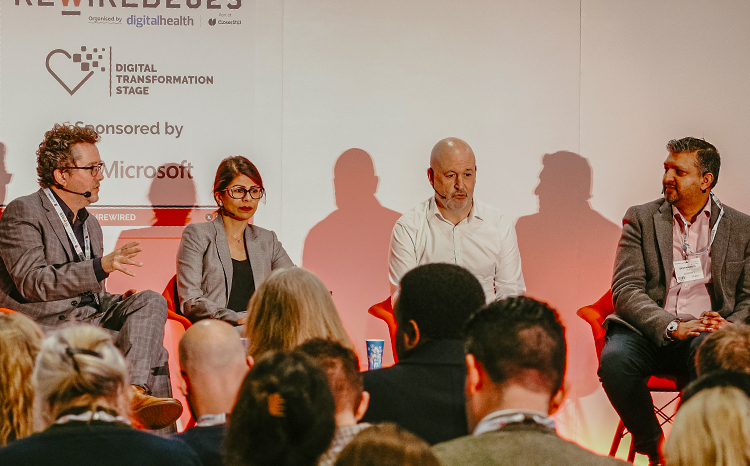Judge for yourself
- 23 May 2005
 Neil Versel
Neil Versel
Legal issues took centre stage during a mock trial on the legality of EHRs, one of the highlights of the 21st annual Towards an Electronic Patient Record (TEPR) conference in Salt Lake City, Utah.
The prosecution in the case was hoping to demonstrate that EHRs may not carry full weight as a definitive patient record under current US law and market conditions.
"If the EHR is not inherently legal, that’s a barrier to adoption," said Dr Chris Hobson, clinical director of New Zealand-based Orion Systems International, acting as the prosecution’s lead attorney.
There are no standards for current EHR systems to follow, so that could potentially raise the risk of being held liable for malpractice.
“Buyer beware,” warned prosecution witness Barbara Drury, a computing consultant for physicians. Drury said that many current EHR products have problems with access control.
“I see increased risk with interoperability,” Drury added. She indicated that doctors would be uncomfortable with handling the data of other institutions, and with others handling sensitive information from one’s own institution.
“Physicians squirrel away things they don’t want anyone else to see on the [paper] chart.” Electronic records potentially bring those comments into the open, Drury said.
One unidentified witness from the audience said, “I am 100 per cent in favour of electronic health records. However, we are not there yet,” in terms of interoperability standards. “There is no definition of what ‘data’ is,” according to this witness.
He asked, “At the moment, how do we certify what makes an electronic health record?”
Another audience member, testifying on behalf of the defence, said simply, “We lose paper.”
Bogged down
|
"All that money we are spending in Iraq is less than we spend on administration of healthcare"
— Doug Barton, Lockheed Martin Integrated Systems & Solutions |
For the defence, Doug Barton, a network specialist for Lockheed Martin Integrated Systems & Solutions, said that it is virtually impossible to track quality metrics without information technology. Noting that the US health system is notoriously bogged down in paperwork, Barton argued, “All that money we are spending in Iraq is less than we spend on administration of healthcare.”
J. Stuart Newsome of coding publisher UnicorMed maintained that EHRs help improve coding, which he says is inaccurate nine times out of 10. “It will be legal and stand up to an audit.”
One witness argued, “A well-designed computer system can be more secure and more compliant than a paper system.”
Several defence witnesses said that paper records also carry questions of confidentiality and authenticity, since so-called “original” documents might be fraudulent.
Claudia Tessier, a former CEO of the American Association of Medical Transcriptionists and current director of the Mobile Healthcare Alliance, said that the transcription process can create multiple copies of paper records. “You don’t know, when you look at a transcript report, whether you are looking at the ‘first original’ or the ‘second original.’”
The audience served as the jury, and was divided as to whom made the better case. Lawyers for the defence, kept raising the argument that EHRs promote efficiency and patient safety, without directly addressing whether current US law supports an EHR as the only genuine patient record.
The mock trial’s judge, Gordon Apple, vice chair of the American Health Lawyers Association’s health information and technology practice group and keeper of a Web site called HealthLawGeek.com, hedged with his decision: “The prosecution has failed to make its case, but it has raised some very important issues that the defence must address.”
Modelling
Also at TEPR, which drew over 4000 people over three days, US national health information technology coordinator Dr David Brailer cancelled a planned speech at TEPR due to a pressing meeting at the White House.
US Health and Human Services (HHS) Secretary Mike Leavitt is expected to announce soon that his department will be modelling regional health information organisations (RHIOs) after the well-established Utah Health Information Network. Leavitt is a former governor of Utah, the state which hosted this year’s TEPR conference.
The Utah network, in operation since 1993, is an individual, not-for-profit, self-sustaining entity with its own governance structure. Users, not software vendors, control and “own” the data that flow across the system, according to Dr David Sundwall, executive director of the Utah Department of Health, who spoke at the conference.
About 56 per cent of hospitals in the Western state have functioning EMRs, well above the estimated US average of less than 30 per cent, Dr Sundwall said.
Meanwhile, Isabel Healthcare Systems, whose decision support software was developed at St Mary’s Hospital, Paddington, London, continued its push into the US market. The company is partnering with NextGen Healthcare Information Systems, an American ambulatory software developer, to create what the two companies say is the first direct link of diagnostic decision support to an EMR.
Isabel will be an option for customers of Siemens Medical Solutions Health Services who purchase NextGen ambulatory systems through a reseller agreement struck in February.




